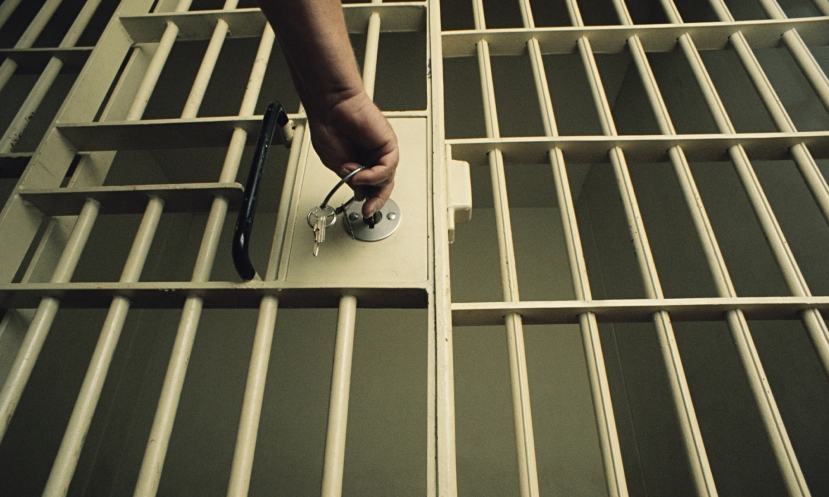UK prisons won’t let journalists in – what do they have to hide?
16.03.2015 11:18
 UK prisons won’t let journalists in – what do they have to hide?
UK prisons won’t let journalists in – what do they have to hide?
I found it easier to visit a military prison in Vladimir Putin’s Russia than to gain access to a British jail
When officials block a visit by a journalist, you do wonder what it is they don’t want you to see. Over the past couple of years I have found it impossible to get reporting access to two important British institutions – supermarket abattoirs and adult prisons.
Shortly after the horse meat scandal, I was asked by an editor to write a detailed piece about how modern abattoirs work, and duly contacted a range of supermarkets – Tesco, Waitrose, Morrisons and Sainsbury’s. I had long conversations with public relations advisers explaining that this would be a neutral description of a crucial part of the food processing industry that we don’t often get to see. All of them considered the idea, before deciding that they did not want to host a visit.
Since the beginning of 2013, I have also been making repeated requests to the Ministry of Justice for permission to visit prisons. The requests have been considered, discussed and then refused.
In May 2014, after a year of refusals, Guardian editor Alan Rusbridger offered to help and wrote to the justice secretary, Chris Grayling, to support the request. They met, discussed the issue and organised a separate meeting with Michael Spurr, the most senior civil servant handling prisons, where the issue was discussed some more. Spurr said he thought this kind of reporting was beneficial and could see no problem with it. We submitted new requests which were discussed again with MoJ officials. After eight months of negotiations, the final response was an email last week that concluded: “Unfortunately we are not in a position to take your request forward at the moment.”
Although the MoJ press office relays these judgments, the decision is firmly in the hands of the minister – which is odd because you might think he has better things to do with his time.
This refusal to be open is both frustrating and perplexing. There is an enormous amount happening in the prison sector that we would like to be able to report on in detail. There are real challenges for the government. The prison population is rising, but funding to the service has been cut by £263m over three years, and 28% of its staff has been cut since 2010. Several prisons are very overcrowded, and there has been a sharp rise in suicides among prisoners.
In parallel with this, there are critical shifts in government thinking on how to handle the rising prison population. Bigger prisons are being built, like Oakwood, the G4S-run prison, designed to hold 1,605 men, which has had a rocky start since opening in 2012 but appears to be functioning more smoothly now. Work is well-progressed on Wrexham jail that will become Britain’s largest with 2,100 places.
The Guardian’s home affairs editor, Alan Travis, reports scrupulously on these issues, informed by the regular, detailed prison inspection reports and his extensive contacts with governors, MoJ officials and ex-offenders. But we hoped to supplement his work with on-the-ground reporting that would describe to readers how modern prisons work, highlighting the range of challenges facing staff as they grapple with the combined effects of cuts and a rising population.
When officials explained that the situation at Oakwood was too delicate to allow visitors, we made new requests to visit prisons that had received positive inspection reports, on the grounds that it is as informative and interesting to write about prisons working well as it is to write about those with problems.
In 2011, a three-day visit to Ashfield young offender institution, run by the private company Serco (organised when Kenneth Clarke was justice secretary, presiding over a more open media regime), was enlightening in unexpected ways. Some of Serco’s staff appeared genuinely committed to improving outcomes for the young people inside. An extended visit showed how difficult and expensive it is to look after troubled teenagers, a third of whom have diagnosed mental health problems.
The MoJ press office says it “doesn’t have the resources” to organise a visit for the Guardian before the general election. However, occasionally they do seem to have the resources to let in reporters from the Times and the BBC.
Visiting a military prison in Vladimir Putin’s Russia was easier than this, while a trip to a high-security jail in Norway required no more than a quick phone call to the governor.
I hope the big supermarkets relent and let the Guardian visit their abattoirs. Equally, I’m hoping that Grayling will shake off his reluctance to let journalists see how prison life works, and realise that openness can be a positive exercise for prison staff, inmates and readers.
